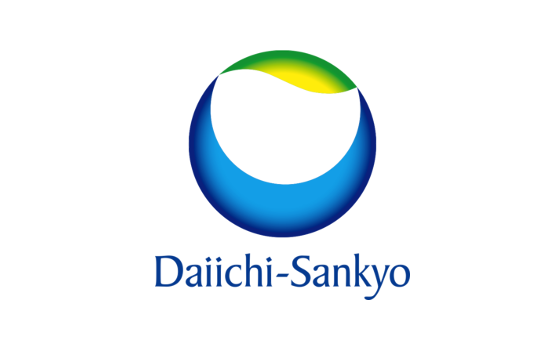 Daiichi Sankyo Company, Limited (hereafter, Daiichi Sankyo) today announced details of the application for its Take a New Challenge for Drug Discovery (TaNeDS) Europe 2017, a collaborative drug discovery initiative for universities and research institutes in Europe. TaNeDS programme was launched in Japan in 2011 to help discover new lines of research through open innovation. From 2013, it has expanded outside of Japan, opening up to researchers in Germany, Switzerland and Austria and became known as TaNeDS Global Programme. Since 2014, it has expanded further across Europe to include all EU member states and was renamed "TaNeDS Europe" in 2015. The aim of this programme is increasing collaborative opportunities with researchers in Europe.
Daiichi Sankyo Company, Limited (hereafter, Daiichi Sankyo) today announced details of the application for its Take a New Challenge for Drug Discovery (TaNeDS) Europe 2017, a collaborative drug discovery initiative for universities and research institutes in Europe. TaNeDS programme was launched in Japan in 2011 to help discover new lines of research through open innovation. From 2013, it has expanded outside of Japan, opening up to researchers in Germany, Switzerland and Austria and became known as TaNeDS Global Programme. Since 2014, it has expanded further across Europe to include all EU member states and was renamed "TaNeDS Europe" in 2015. The aim of this programme is increasing collaborative opportunities with researchers in Europe.
About TaNeDS Europe 2017 Collaborative Drug Discovery Programme
1. Eligible Countries
All EU member states plus Iceland, Norway, Switzerland and Israel
2. Candidate Research for Application
New drug-target discovery, drug-target validation, and innovative technological research that could result in novel drug discovery and development
3. Research Themes
(1) Cancer
New mechanisms and drug-target validation study for small-molecule and biologic treatments (antibody drugs, etc.)
(2) Pain and Sensory Neuron Disorder
New mechanisms and drug treatments for pain and sensory neuronal systems in vision/hearing loss
(3) End-Organ Diseases
New targets and mechanisms of end-organ diseases from heart, kidney, liver and vascular diseases
(4) Other Internal Diseases
New mechanisms and drug treatments for rare diseases, gastrointestinal disorder and anaemia
(5) Cell Therapy
Research on novel somatic stem/progenitor cells, adoptive T-cell therapy and new technology on cell/gene modification
(6) Revolutionary Drug Discovery Technology
Novel technology on oncology, nucleic acid therapeutics, gene therapy and drug metabolism and pharmacokinetics
For more details, please visit TaNeDS Europe webpage at: http://www.daiichisankyo.com/rd/taneds/index.html
4. Budget and Period of Research
Depending on the project type, up to maximum of 80,000 (Type A) or 150,000 (Type B) euros (plus overhead) per year for collaborative research projects for 2 years
5. Eligibility
Researchers of any nationality employed by universities, research institutes and start-up companies within the EU as well as Iceland, Norway, Switzerland and Israel, who can conduct research in those countries
6. Selection criteria
By matching Daiichi Sankyo's research interests as well as demonstrating originality, potentiality and possibility of drug discovery
7. Schedule
Application period: January 10 to February 20, 2017
First shortlist selection period: Late February to Mid-March, 2017
Second shortlist selection period: April, 2017
On-site visit interview: Mid-May, 2017
Notification of final decisions: Early June, 2017
Start of research programmes: August 2017 and onward
About Selection Results for TaNeDS Europe 2015/2016 Collaborative Drug Discovery Programme
The selection for 2015/2016 resulted in four projects, and the three collaborations are currently underway having one under negotiation.
(1) Applications: 191
(2) Selected: 4
The themes of four selected proposals are Cancer Biologics (Switzerland), Sensory Neuron (the Netherlands), Rare Diseases (Ireland), and Anaemia (Sweden).
About Daiichi Sankyo
Daiichi Sankyo Group is dedicated to the creation and supply of innovative pharmaceutical products to address diversified, unmet medical needs of patients in both mature and emerging markets. With over 100 years of scientific expertise and a presence in more than 20 countries, Daiichi Sankyo and its 16,000 employees around the world draw upon a rich legacy of innovation and a robust pipeline of promising new medicines to help people. In addition to a strong portfolio of medicines for hypertension and thrombotic disorders, under the Group's 2025 Vision to become a "Global Pharma Innovator with Competitive Advantage in Oncology," Daiichi Sankyo research and development is primarily focused on bringing forth novel therapies in oncology, including immuno-oncology, with additional focus on new horizon areas, such as pain management, neurodegenerative diseases, heart and kidney diseases, and other rare diseases.